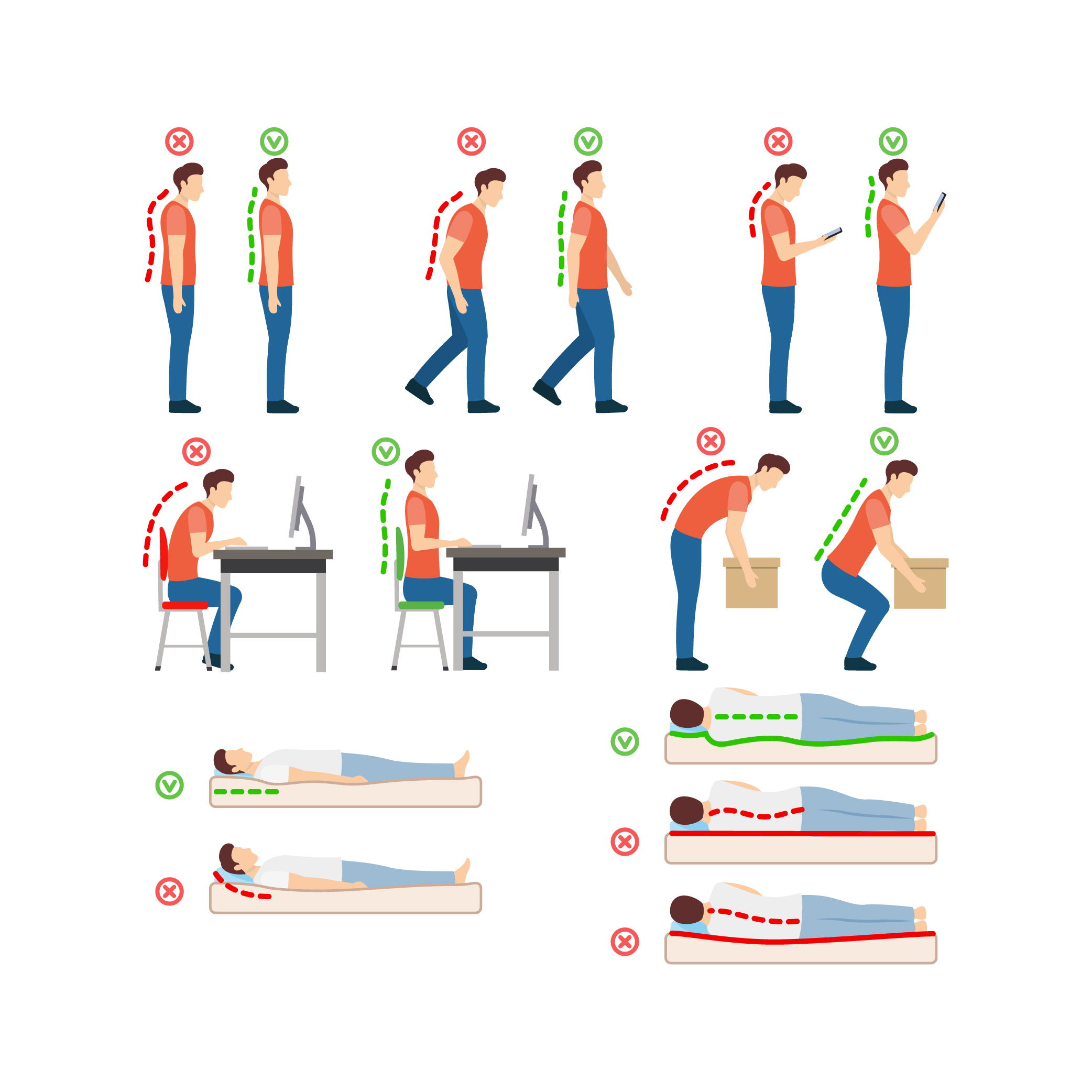Can posture affect the health?

Posture is defined as the way one holds the body against gravity when standing, sitting, lying and walking.
There is interaction between many parts of the body to maintain correct posture, including between muscles, skeleton, visual and vestibular balance system.
Poor posture can have a variety of impacts on wider health, such as being a cause of back and neck pain, shoulder pain, headache, jaw pain, poor blood circulation, reduced lung expansion and digestive problems.
In contrast, the health benefits of good posture can include reducing the incidence of back pain, headache; less tension in the neck, shoulder and jaw; improved breathing and increased energy levels; improved circulation and digestion.
A few simple adjustments, if consistently followed, can promote these health benefits through improved posture.
These include maintaining a more erect alignment of the spine when standing, adjusting the ergonomics of any work place where you spend a lot of time in certain positions (such as readjusting the angle of neck when sitting looking at a computer screen for extended periods) and keeping active with regular exercising.
Any exercises that strengthen the core muscles of the torso will have benefits to maintaining good posture. Exercise systems which focus on body awareness and overall body position, like Gyrotonic, Gyrokinesis, yoga, and tai chi, are especially helpful and beneficial to improving posture, and are strongly recommended for the wider health benefits which will result from improved overall postural alignment.
